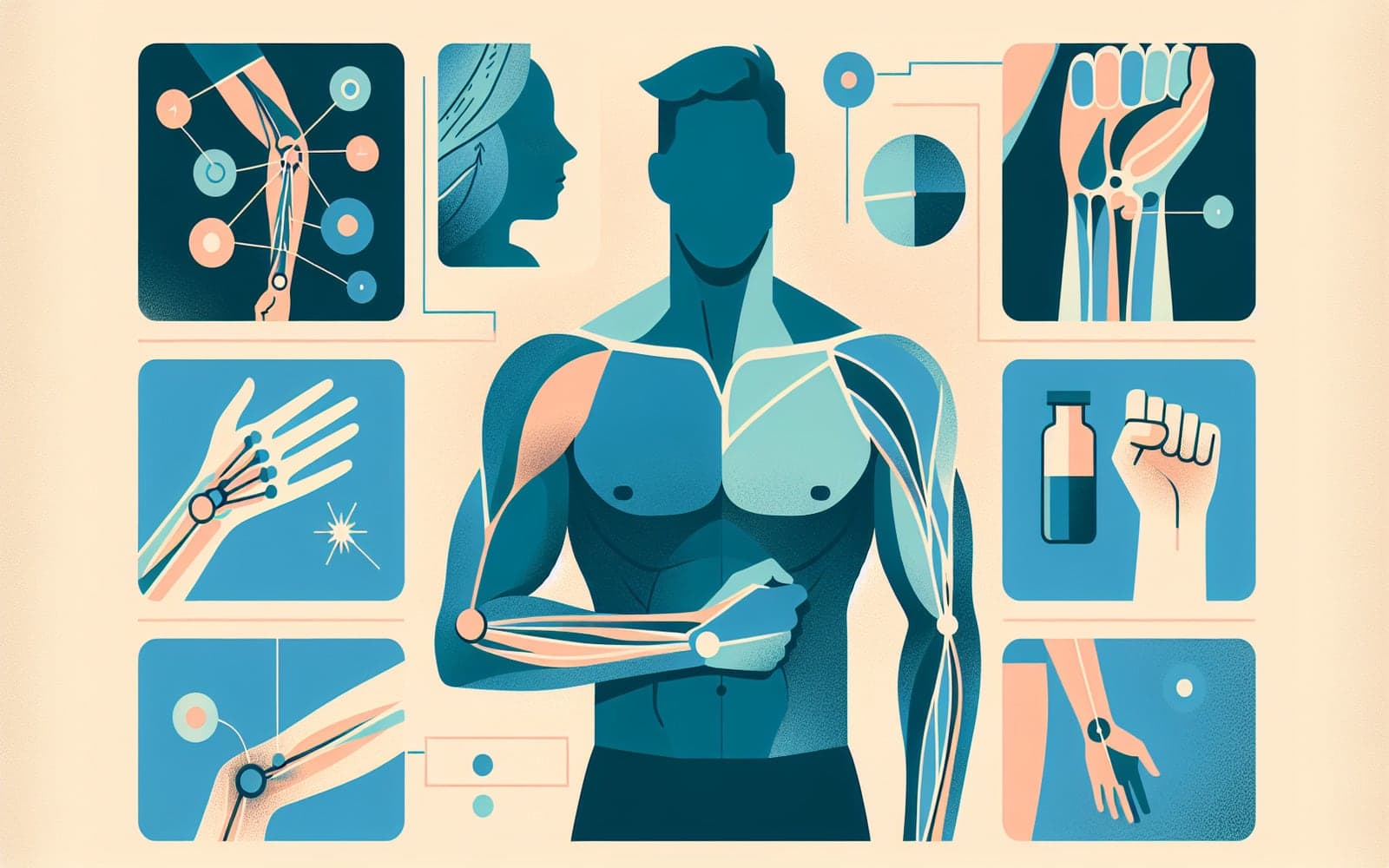Decoding the Signs: Symptoms of Biceps Tendon Injuries
Published: May 12, 2024
Your body often sends signals when something's not right, and biceps tendon injuries are no exception. Recognizing these symptoms early can lead to faster diagnosis and more effective treatment. Let's explore the key signs that might indicate a biceps tendon problem.
Contents
The Pain Puzzle: Location and Timing
Pain is often the first sign of a biceps tendon injury, but its characteristics can vary. Typically, you'll feel pain in the front of the shoulder, which may extend down the upper arm. This pain often worsens with activities like lifting or reaching overhead. Some people experience a dull ache that becomes sharper with certain movements. Night pain is also common, potentially disrupting sleep.
Beyond Pain: Other Physical Signs
While pain is a primary symptom, other physical signs can indicate a biceps tendon injury. You might notice swelling in the upper arm or shoulder area. In cases of a complete tendon tear, you may see or feel a bulge in the upper arm - often called a 'Popeye' deformity. Some people report a clicking or catching sensation in the shoulder, especially with certain movements.

Functional Changes: Strength and Movement
Biceps tendon injuries can affect how your arm functions. You might notice weakness, particularly when trying to bend your elbow or rotate your forearm (like turning a doorknob). In some cases, the range of motion in your shoulder might be affected. These changes can make everyday activities, like lifting objects or reaching for items on high shelves, more challenging.
Frequently Asked Questions
Yes, especially in cases of acute tears or ruptures.
Not always; some injuries develop gradually with symptoms worsening over time.
It's rare, but some people may experience weakness or deformity without significant pain.
They can be similar, which is why professional diagnosis is important.
Key Takeaways
While these symptoms can indicate a biceps tendon injury, they may also be signs of other shoulder problems, making professional evaluation crucial for accurate diagnosis.
If you're experiencing any of these symptoms, don't hesitate to reach out to Doctronic for a thorough evaluation and personalized advice.Related Articles
References
Nho SJ, Strauss EJ, Lenart BA, et al. Long head of the biceps tendinopathy: diagnosis and management. J Am Acad Orthop Surg 2010; 18:645.
McDonald LS, Dewing CB, Shupe PG, Provencher MT. Disorders of the proximal and distal aspects of the biceps muscle. J Bone Joint Surg Am 2013; 95:1235.
Always discuss health information with your healthcare provider.

